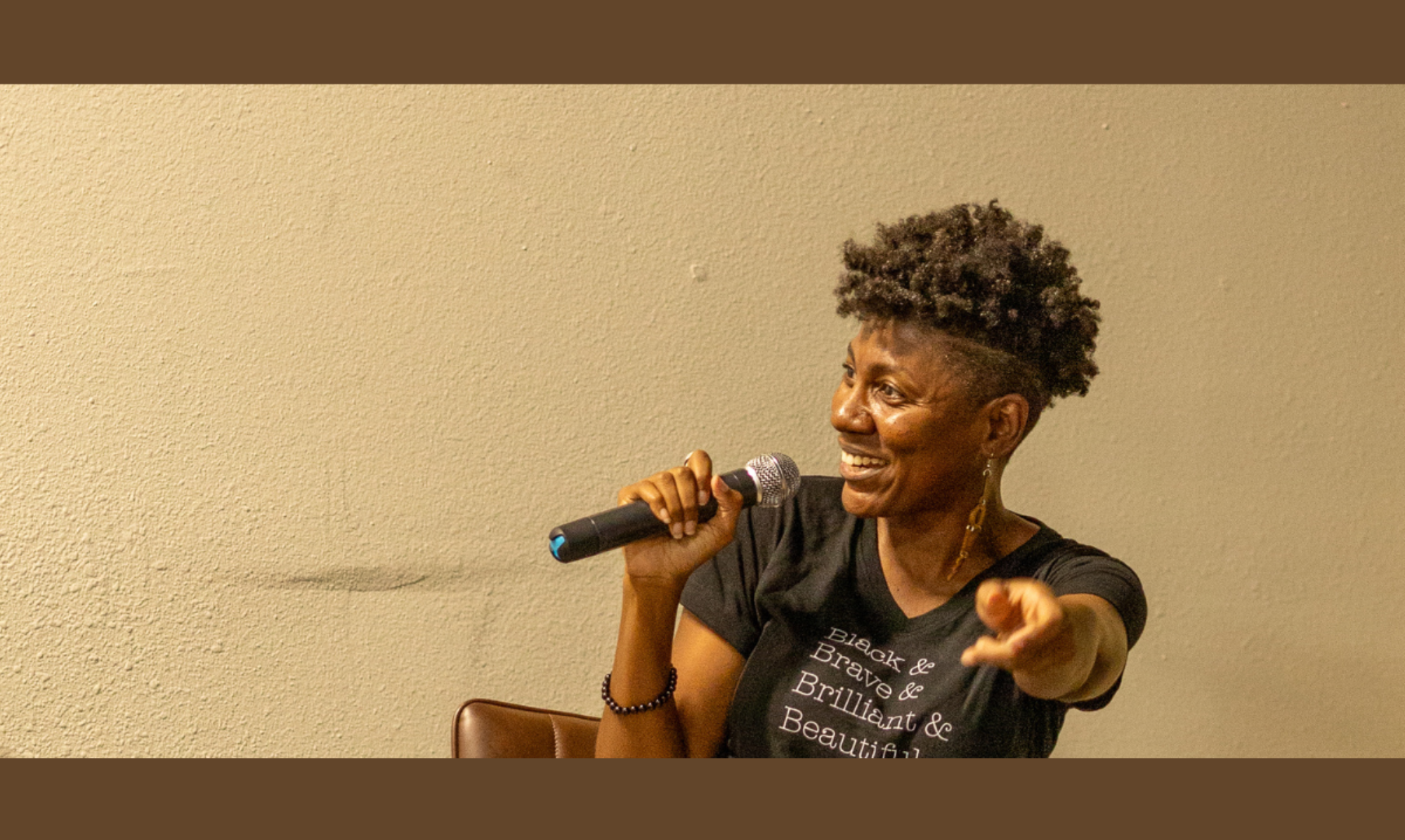On being a Dark Skin
By: Basirat A. Owe, 2nd Place Division 2
I was seven and I was told I couldn’t go out to play.
My skin was already too dark
And my hair too kinky to contain.
I tried scrubbing it off.
I tried covering it up.
I tried praying to God.
But nothing worked.
I was 10 and I was taught that I was ugly.
Disgusting. The big black beast in the mirror.
I knew it. They knew it.
I didn’t need the scrawny boys telling me I was unlovable,
That I should go back to Africa.
I didn’t need to be assured of my complexion,
That I was so black I was purple
I didn’t need any more reason to hate myself
Because no one could hate me more than I did
I was 14 and I knew I was pretty,
For a dark skin girl.
I hoped that my non existent curves
and my prepubescent breasts
would distract from my dark face.
I knew every light skinned girl had to have a dark skinned friend
to make her shine a little brighter.
Yet, all this time I never knew I was a victim.
A Victim. A casualty. Collateral damage.
You see, I thought it was racism.
Institutionalized, ugly, and coming from all sides.
The stereotypes and the jokes.
I thought we were together against the common enemy.
I thought we were rising up against ‘the man’.
I thought we were a united front.
Divided front.
Because I never knew that my own people,
My own family,
were against me.
People think being dark skinned is so bad.
Like the tone of your happiness
Will be set with your skin color.
Like your beauty is ranked by
A certain amount of melanin
Like finding someone to love is impossible
Because you so happen to have onyx skin.
I’m seventeen and I know that I’m beautiful
At least, I think I know.
I hate to remind myself of before.
The jokes, the skin lightening, the depreciation.
But I have to, so I can remember how painful it was:
How internalized colorism ruined my self worth,
Depleted my self esteem,
And led to my self hatred.
I thought my night skin was my one flaw
And my “nappy hair and afros.”
And my ‘black’ features
My “nose is round and wide”
I didn’t like much about myself actually
So a few times I thought,
“Maybe if you were a little lighter…”
You’d be desirable
You’d be beautiful
You’d be happy
I was wrong.
If my skin was a little lighter,
I’d still be discriminated against.
If my curl was a little looser,
I’d still be ashamed of my natural blackness.
It’s a double edged sword,
And I’m happy to be on my dark end.
This kinky, coily, curly hair goes back generations
Zig zag patterns with twists and turns
My ancestors breaking their backs for me.
This skin, my radiant melanin.
What would I do without it?
Cover and protection.
It shines with strength and beauty
It says, “I’m black, and I’m proud”
No, that’s me saying:
Black women are beautiful,
Black women are enough,
Black women are making strides.
Iconic. Proud. Timeless.
My skin represents years of oppression
And a future of freedom.
Who could cover up such a blessing?
How can you pray it away?
In what ways is it ugly?
For any girl?
Dark skin. Brown skin. Light skin
I love my skin.
 About the Poet: My full name is Basirat Asabi Owe, but I prefer my nickname Bazzie. I was born on March 31st 1999 in Detroit, and raised there as well — an inner city girl. I think a turning point for me was my parents’ divorce when I was eight years old, since then I’ve lived with my mom. She always emphasized education, not prestige or winning so much as doing your absolute best and working your hardest. That said, she tried to send me to the best schools she could. I attended University Prep Science and Math Middle School and after several recommendations from teachers I applied to the International Academy in Troy, MI. Needless to say I was admitted and I’ve been studying there for the last three years. I aspire to go to Northwestern University, Howard University, or George Washington University to pursue my interests in the biomedical sciences. My goal is to become a doctor, but more than that I hope to aid my community and contribute to various social movements concerning race, sexuality, and sexism that our society is still plagued by.
About the Poet: My full name is Basirat Asabi Owe, but I prefer my nickname Bazzie. I was born on March 31st 1999 in Detroit, and raised there as well — an inner city girl. I think a turning point for me was my parents’ divorce when I was eight years old, since then I’ve lived with my mom. She always emphasized education, not prestige or winning so much as doing your absolute best and working your hardest. That said, she tried to send me to the best schools she could. I attended University Prep Science and Math Middle School and after several recommendations from teachers I applied to the International Academy in Troy, MI. Needless to say I was admitted and I’ve been studying there for the last three years. I aspire to go to Northwestern University, Howard University, or George Washington University to pursue my interests in the biomedical sciences. My goal is to become a doctor, but more than that I hope to aid my community and contribute to various social movements concerning race, sexuality, and sexism that our society is still plagued by.
